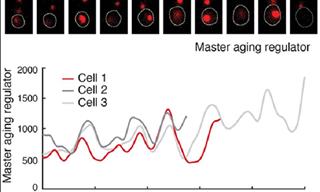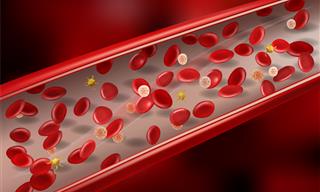
What is Vitamin K?
Discovered in 1929, vitamin K is an essential nutrient for blood coagulation (blood clotting). The vitamin was discovered by a dentist, Weston Price, who studied the relationship between diet and disease in different populations. During his research, he also discovered that non-industrial diets were high in some unidentified nutrient, which seemed to provide protection against tooth decay and chronic disease. He referred to this mystery nutrient as Activator X, which is now believed to be vitamin K2. Vitamin K is found in plant foods like leafy greens, whereas vitamin K2 is found in animal and fermented foods.
How do Vitamin K1 and K2 Work?
Vitamin K works alongside calcium - an incredibly important mineral which builds material for bones and teeth and plays a crucial role in all kinds of biological processes. But the roles of vitamin K1 and K2 are quite different, and many feel that they should be classified as separate nutrients altogether. While Vitamin K1 is mostly used by the liver to activate calcium-binding proteins involved in blood clotting, K2 is used to activate proteins that regulate where calcium ends up in the body.
Here are more benefits of vitamin K2, explaining why we need this essential vitamin.
1. It may help prevent heart disease
Calcium build-up in the arteries around the heart is a huge risk factor for heart disease. Consequently, anything that can reduce this accumulation of calcium may help prevent heart disease. Vitamin K2 is believed to help by preventing calcium from being deposited in the arteries. A study conducted over a 7-10 year period in Rotterdam found that those who had the highest intake of vitamin K2 were 52% less likely to develop calcification of the arteries, and had a 57% lower risk of dying from heart disease.
Furthermore, another study of 16,057 women found that participants with the highest intake of vitamin K2 had a much lower risk of heart disease. It was found that for every 10 micrograms of K2 they consumed per day, the risk of heart disease was reduced by 9%. It was therefore concluded that a higher intake of vitamin K2 is strongly associated with a reduced risk of heart disease, while vitamin K1 appears to be less useful.
2. It may help improve bone health and lower the risk of osteoporosis
Osteoporosis is a common problem in Western countries, and is especially common among elderly women, strongly increasing the risk of fractures. There is quite a bit of evidence from controlled trials that K2 has major benefits for bone health. A 3-year trial in 244 postmenopausal women found that those taking vitamin K2 supplements had much slower decreases in age-related bone mineral density.
In addition, lengthy studies on Japanese women have shown similar benefits, although they did use very high doses. From 13 trials, only one failed to show significant improvement. In seven of those trials, it was found that vitamin K2 reduced spinal fractures by 60%, hip fractures by 77% and all non-spinal fractures by 81%. Due to these findings, the Japanese officially recommend vitamin K supplementation for the prevention and treatment of osteoporosis.
3. It may improve dental health
Researchers have discovered that vitamin K2 may affect dental health. Based on animal studies, due to the role vitamin K2 has in bone metabolism, it is reasonable to assume that it impacts dental health too. Vitamin A and D are also believed to play an important role here, working in synergy with vitamin K2.
4. It may help fight cancer

With cancer on the rise, finding effective prevention strategies is of utmost importance. Several studies have been done on vitamin K2 and certain types of cancer. In two clinical trials, it was suggested that vitamin K2 reduces recurrence of liver cancer and increases the chance of survival. An observational study conducted on 11,000 men found that a high vitamin K2 intake was linked to a 63% lower risk of advanced prostate cancer, while vitamin K1 had no effect.
How to Get Vitamin K2
As humans, we can partly convert vitamin K1 to vitamin K2 in the body. This is useful because the amount of vitamin K1 in a typical diet is 10 times that of vitamin K2. But, current evidence shows that we benefit greatly from consuming vitamin K2 directly. This vitamin is produced by gut bacteria in the large intestine and there is some evidence that broad-spectrum antibiotics can contribute to K2 deficiency.In the modern diet, however, the average intake of this important nutrient is incredibly low. It is mainly found in certain animal and fermented foods, which most people don't eat much of. Rich animal sources include high-fat dairy products from grass-fed cows, as well as the liver and other organs. Egg yolks are also a good source of vitamin K2. While more research needs to be conducted on this fat-soluble vitamin, the current research on vitamin K2 and its health benefits are extremely promising.
 Go to BabaMail
Go to BabaMail





























